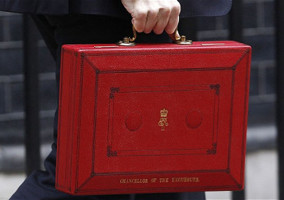It is difficult to ignore the increasing chatter about inflation at the moment. And while many investors may agree it is a threat, fewer are paying enough attention to how it might affect portfolios.
You might well expect that restaurants are reopening with increased prices after having been shut for months. Perhaps more surprising is that many restaurants cannot find the staff, just as we are emerging from a crisis that put millions out of work.
The National Federation of Independent Business’ (NFIB) May survey reveals some stark results. Some 48% of small-business owners reported unfilled job openings. Just as impressively, 43% of the respondents planned to increase prices in the next three months, the highest rate we have seen since 1980.
This is important because inflation expectations feed into inflation too. It’s a vicious cycle. Inflation becomes more enduring when expectations become imbedded in the consumer spending and business decisions.
It is no wonder that the cost of goods and services is increasing when the commodities to produce them have soared in price. One of the most extraordinary rallies in the last year has been the lumber wood (processed timber) market in North America. At its peak in May, the price of lumber had risen nearly four times in a year, according to the Financial Times.
Clear signs
That said, while there are clear signs, we should be careful not to be alarmist. With some commodities which have shot up, much of the inflation may already be priced in. What’s more, comparing prices to this time a year ago, when much of the world was in lockdown, means starting at a low base.
Future inflation is unlikely to be predictable and smooth. Unexpectedly high or sudden inflation hurts investors most. The mainstay of portfolios for the last 40 years – bonds and equities – are unlikely to bring in the same returns.
Fixed income will certainly suffer: rising inflation erodes away real returns on bonds, so investors demand a higher yield on their investment, in turn pulling down the asset price. The case for equities is more nuanced, but higher inflation will mean a higher discount rate used to calculate future earnings, reducing company valuations. The underperformance of high-rated growth stocks over the past months is testament to this.
Alexander Johnstone is an investment associate at Ruffer
Ruffer LLP is a limited liability partnership, registered in England with registered number OC305288 authorised and regulated by the Financial Conduct Authority. The information contained in this article does not constitute investment advice or research and should not be used as the basis of any investment decision.
Related articles












